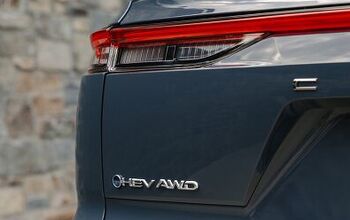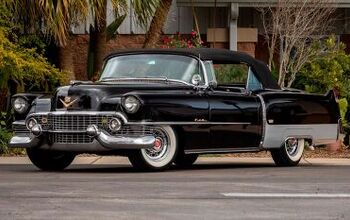Tentative GM Agreement Details Revealed, UAW Council Deliberates

After reaching a tentative agreement with General Motors on Wednesday, the United Auto Workers has released a summary of the proposed labor contract.
Contained within are wage hikes for GM autoworkers, lump sum increases, a generous signing bonus, the removal of caps on profit-sharing payouts, and a health care plan that maintains the status quo. It would also keep one previously doomed assembly plant open.
What we don’t know, at this point, is when the ongoing strike will end.
At publication time, local UAW leaders and union brass were still meeting behind closed doors to decide whether to greenlight the agreement — and whether that go-ahead will signal an end to a five-week-long strike that darkened GM plants the continent over. It’s possible the strike could continue until an agreement is ratified by members.
(You can read a full summary of what the agreement means for hourly and contract workers here.)
During bargaining talks, two issues that cropped up again and again were health care coverage and a path to full employment for temporary employees. These issues seem to be addressed here. After initially proposing workers pay 15 percent of their health costs, up from 3 percent, GM backtracked shortly before the strike. The previous 4-year contract’s health coverage carries over into this agreement.
As for temporary employees, they would have a path to full employment under this proposal. Meanwhile, all current hourly workers would be on a route to earn at least $32.32 an hour by the end of the contract term. New hires would reach full pay in four years; half the previous time span. A $11,000 signing bonus would be offered to full-time hourly workers.
Wages and lump sums would be subject to increases of 3 percent a year.
But what of vehicle production? The issue of job security and recently announced plant closures played a role in prolonging the negotiations. While the tentative agreement keeps Detroit-Hamtramck Assembly — previously slated for closure in January 2020 — open, it doesn’t return life to Ohio’s shuttered Lordstown Assembly, nor the two GM transmission plants in Michigan and Maryland.
To that end, GM is offering big buyouts. Employees from these plants can either choose early retirement, or opt for a $75,000 buyout without having to return any relocation expenses paid for by GM. Workers eligible for retirement will be given a $60,000 bonus if they choose to leave the job and start collecting their pension in January or February.
[Image: General Motors]

More by Steph Willems
Latest Car Reviews
Read moreLatest Product Reviews
Read moreRecent Comments
- ToolGuy If these guys opened a hotel outside Cincinnati I would go there to sleep, and to dream.
- ToolGuy Michelin's price increases mean that my relationship with them as a customer is not sustainable. 🙁
- Kwik_Shift_Pro4X I wonder if Fiat would pull off old world Italian charm full of well intentioned stereotypes.
- Chelsea I actually used to work for this guy
- SaulTigh Saw my first Cybertruck last weekend. Looked like a kit car...not an even panel to be seen.


































Comments
Join the conversation
#highdesertcat--The Ridgeline is an excellent choice for many and the cab room is excellent. For most a Ridgeline would more than meet their needs and Honda makes good solid vehicles. My wife had a 77 Accord for over 17 years and her 2013 CRV which is loaded is a very good vehicle. I am almost 68 and I completely understand the importance of ingress and egress and seat comfort. It appears that the vehicle your friend wants will be the Ridgeline--"happy wife happy life."
HDC, your welcome. Everyone has different needs and wants and the most important thing is to be satisfied with what you buy.